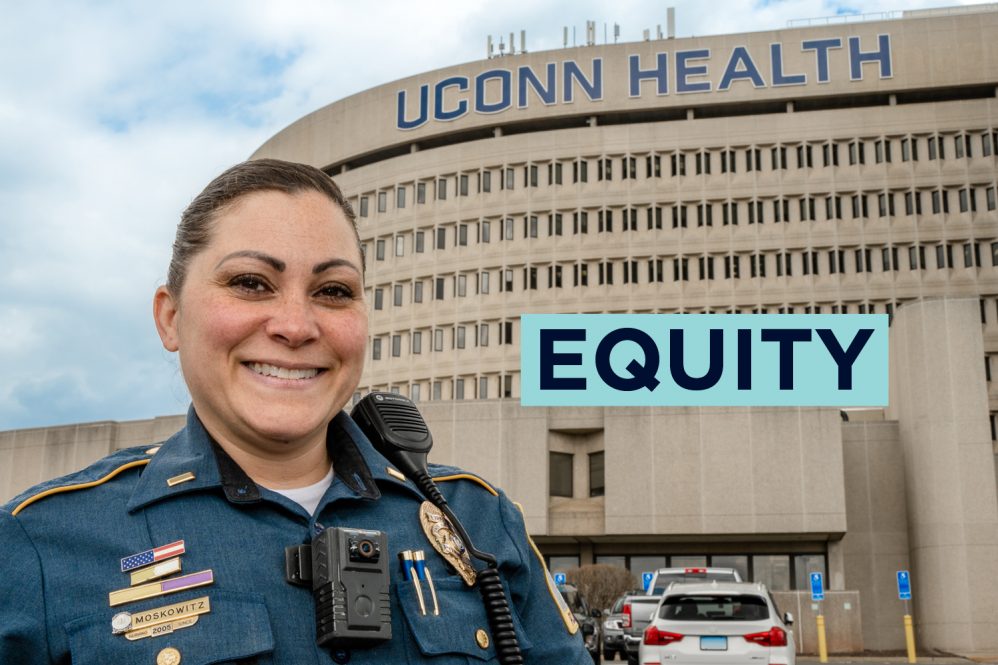Equity is the quality of being fair and impartial and speaks to fairness and treatment to include equality of opportunity for all.
Jennifer Moskowitz, Lieutenant in the UConn Police Department here at UConn Health deals with equity issues within a male-dominated field and among the community she serves daily.
Moskowitz began her career with the UConn Police Department 18 years ago. She began as a patrol officer at the Storrs Campus and then transferred to the Waterbury campus where she was promoted to Sergeant. In February 2020 she was promoted to Lieutenant and assigned to UConn Health to oversee the daily Patrol operations. She also oversees the Community Outreach Unit which brings educational programming to all of the UConn Campuses statewide.
Gender inequality is still a defining aspect of law enforcement, even in today’s world of slowly increasing employment fairness. Women comprise only a small percentage of the local law enforcement in agencies across the nation. Though their presence in the police force dates back to the beginning of the 20th century, it’s only been noticeable in the past 40 years.
“Working in a male-dominated profession is a challenge,” says Moskowitz. “As a female in this profession, it is vital for me to seek support from other female role models.”
Moskowitz explains it’s hard as females, the majority feel they have to prove themselves and try harder than their male colleagues. She always works to beat the standards set for males rather than the female category. She feels her male counterparts don’t have that pressure.
On the community side, Moskowitz says that equity to her means recognizing where people are and meeting them there so we can work effectively as a team.
“We work with many under-represented communities that must be treated with respect and equity for a successful outcome,” says Moskowitz. “As you know, UConn Health is dedicated to the wellness of the community. We need to recognize that not every member of the community is at the same level. Some need more support and resources to achieve those goals. With that in mind, we need to come together as one unit to support and enhance the mission.”
Moskowitz remembers a specific family in distress and the parent came to UConn Health for help and was admitted. The parent had her young child with her and no one in the family had the available resources to safely retrieve the child. After working with the family, she was able to bring the child to an adult in the family without having to involve other agencies.
“As Police Officers, we encounter many situations where people do not have the means to take care of things that many of us take for granted, such as AAA if your car breaks down, enough food for the family, having adequate health insurance or just having a support system that can be able to care for children if you get sick. Having empathy, compassion, and showing kindness for others goes a long way.”
Moskowitz has witnessed many occasions when officers use their own money to buy food and drinks for those that did not have the financial means to do so.
“I love working with people,” says Moskowitz. “I have always found joy in connecting with people and helping them especially in difficult times.”
Moskowitz recognizes that police work is about rank and she realizes that many females before her have opened a path and that she needs to keep that path open for those females that come after her.



